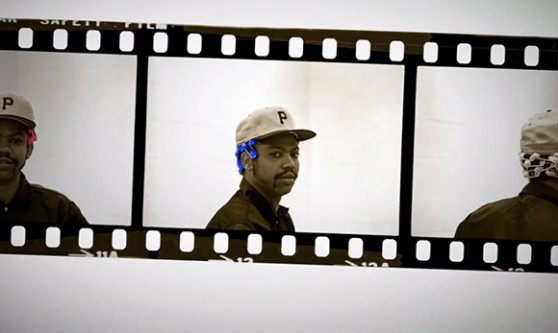No No: A Dockumentary

Despite some frustrating punctuation in the title, No No makes contact.
It more than fulfills its stated goal, which is to let us get to know major-league pitcher and world-champion close-the-bar-downer Dock Ellis beyond the single-sentence bio even most baseball fans have on the guy. That one sentence, of course, is that he pitched a no-hitter on LSD — not a bad sentence, as these things go, at least in the sense that you’re not likely to have to share it with anyone else.
But Ellis also “stood up.” He came up to the show (his description, in archival footage, of getting to the bigs: “I need some more of this shit right here” — hee) at a time when race relations in the game hadn’t gotten much past Jackie Robinson and Larry Doby, and he called it out; he tried to shake things up. On the eve of the 1971 All-Star Game, with Vida Blue starting for the AL and Seaver or Carlton probably getting the nod for the National League, Ellis knew he could force the issue (or at least make everyone talk about it) by “shrugging” that “they won’t start a brother against a brother.” And it worked. People talked about it. (He started the game.) He wore curlers on the field to keep his perm tight, patent-leather platforms off it because they rule, drove Caddies, enjoyed his money. People talked about that too, and around it. Jackie Robinson talked about it, to Ellis, in a letter Ellis broke down while reading aloud, wailing at the end, “Oh, shit!”
Ellis made baseball fans, and to an extent baseball, deal with race in a certain way, while at the same time not dealing with his own addiction and rage, and No No is at its best when it lets those who knew him — particularly his wives and their sugar-free testimony about his abuse — talk about him and his deeds, mis- and otherwise. Sometimes the production wastes running time with cutesy film-sprocket frames and “trippy” color-washing, and we all know what acid is, so you’d rather spend that time hearing more about the prevalence of greenies, or what Ellis said at the Pittsburgh drug trials in ’85, or Mudcat Grant speaking in his musically Buck-O’Neil-ish way about the perils of fighting management before the free-agent era.
On the big issues, though, No No lets people speak, and lets Ellis’s actions speak for themselves, good or bad. Watching it as of this writing, with both the NFL’s and MLB’s reluctance to engage on domestic violence and Giancarlo Stanton’s terrible injuries in the headlines, Ellis’s sublimation of his feelings and performance of Chin Music In (You) Be Flat for Reggie Jackson, you might feel like we’re still struggling with the same issues we did forty years ago. We are; No No lets you draw the conclusion for yourself.
But while some things haven’t changed, Ellis did. He got help, became a counselor, brought the same intensity and spirit-of-the-law brio to helping others with addictions that he did to the mound. That part of No No gets a bit squishy, as though director Jeff Radice wasn’t quite sure how to end such a great story, but overall the film is good, an informative sit with strong participation from friends and family and unforced insights into the man and his career. And if it does nothing else, it reminds us of the existence of Dugout, one of those awfully (…yes) earnest anti-drug pics featuring a bunch of grade-schoolers in dad caps merrily smoking a J before Bo Belinsky comes to lecture them on long-term side effects.
Tags: Bo Belinsky Dock Ellis Giancarlo Stanton Jackie Robinson Larry Doby movies Mudcat Grant No No: A Dockumentary PSAs Reggie Jackson Steve Carlton Tom Seaver Vida Blue





Excellent recommendation. I’m looking forward to this one as a distraction from the endless Jeterpalooza and discussions about what Papelbon did or didn’t do with his, um, parts.